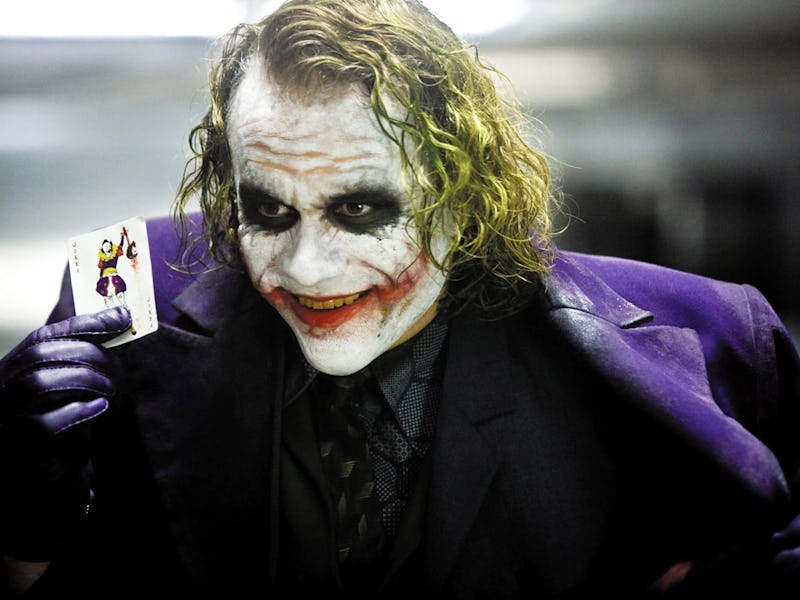Dark Knight theory reveals a strange truth about the Joker
Did he actually have a point?

The Joker is the apex of superhero villainy. From the very first days of Batman, the Caped Crusader’s dark, gritty, ultra-logical morals were perfectly opposed by the Joker’s raucous chaos. Though there have been multiple versions of the Joker, this theme has been a constant. But what exactly is the Joker’s motivation? Does he just love chaos? Is it hatred for Batman? This fan theory suggests that a far more honorable (yet sinister) objective could redefine Batman as we know it.
In a now-deleted post, Redditor Vast_Number_6761 suggests that the Joker we see in The Dark Knight isn’t motivated by opposition to Batman, but is actually looking to provide vigilante justice himself, albeit while working from a twisted worldview. It’s no secret that Batman’s presence on the streets encouraged villains to up their game, so maybe Joker’s huge swings at “justice” are only interpreted as evildoing by Batman.
Batman Begins ends with Commissioner Gordon informing Batman about Joker as a new threat, comparing the two and even blaming Batman for the rise of these supervillains. But this theory says Batman didn’t inspire the Joker’s need to do evil; he just wants to enact positive change in his own strange way. He’s a fan of Batman and his ability to act outside the law.
The final scene from Batman Begins explained how Batman “inspired” the Joker.
This theory underlines a theme that ripples through Christopher Nolan’s take on Bruce Wayne: A vigilante is only as good as his morals. Yes, Batman is fighting crime, but he’s working from his own definition of crime, not the legal one. It’s his moral code that defines his actions, which often leads him to serve as judge, jury, and, occasionally, executioner.
The Joker is acting the same way, but he doesn’t seek justice by striking fear into the hearts of criminals. He seeks justice by showing the public just how chaotic life can be, which in his mind is the noblest mission there is. He may be a violent lunatic with a penchant for blowing up hospitals, but he also knocks off gangsters and corrupt politicians. There is a method to his madness.
Moral greyness is one of the tenets, if you will, of Nolan’s Dark Knight trilogy, and the Joker is the ultimate example. This theory doubles down on that idea and directly connects Batman’s rise to the Joker’s modus operandi. In a sick way, Batman is the Joker’s role model. He’s proof that when you can’t find the power to enact change through the correct channels, you have to take matters into your own hands. The Joker’s hands are just covered in more clown makeup and explosives.
The two vigilantes have a complicated relationship.
Both Batman and the Joker are breaking the law to enforce their ideals. It just so happens that Batman’s ideals more closely match those of the justice system, so the public (and the audience) sides with him. But Bruce Wayne could have easily found himself putting on floppy shoes and a rubber nose if his life had unfolded differently. The Joker may have a horrific worldview, but in his own mind he’s just trying to make the world a better place.
Maybe what makes the Joker such a perfect foil to Batman isn’t how diametrically opposed they are, but how eerily similar their worldviews are.
The Dark Knight trilogy is now streaming on HBO Max.